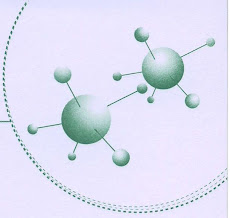
Cognitive impairment has a variety of forms, including short-term memory loss, senility and dementia.
Dementia is a general term for diseases involving nerve cell deterioration. It is defined as a loss in at least two areas of complex behaviour such as language, memory, visual and spatial abilities, and judgement that are severe enough to interfere with a person's daily living. Dementia, the most serious form of age associated mental impairment, is often a slow, gradual process that may take months or even years to become noticeable. Symptoms vary depending on which areas of the brain are affected.
It is important to make a distinction between normal, age-associated mental impairment and conditions such as dementia that signal a disease process. Not all memory difficulties or cognitive complaints indicate the presence of Alzheimer's disease or other mental disorders. Many memory changes are temporary and are linked to environmental factors such as stress rather than to physiological processes.
Neurological diseases such as dementia manifest most commonly in the elderly. The good news is that many of the underlying reasons for why people experience memory loss and other neurological disturbances are correctable. Any one or a combination of the following factors can cause age-associated cognitive dysfunction:
Dementia is a general term for diseases involving nerve cell deterioration. It is defined as a loss in at least two areas of complex behaviour such as language, memory, visual and spatial abilities, and judgement that are severe enough to interfere with a person's daily living. Dementia, the most serious form of age associated mental impairment, is often a slow, gradual process that may take months or even years to become noticeable. Symptoms vary depending on which areas of the brain are affected.
It is important to make a distinction between normal, age-associated mental impairment and conditions such as dementia that signal a disease process. Not all memory difficulties or cognitive complaints indicate the presence of Alzheimer's disease or other mental disorders. Many memory changes are temporary and are linked to environmental factors such as stress rather than to physiological processes.
Neurological diseases such as dementia manifest most commonly in the elderly. The good news is that many of the underlying reasons for why people experience memory loss and other neurological disturbances are correctable. Any one or a combination of the following factors can cause age-associated cognitive dysfunction:
- The damaging effect of chronic inflammation causing injury to both celebral blood vessels and neurons (brain cells).
- Changes in lifestyle and diet leading to nutrient deficiencies (eg. many older people become deficient in critical nutrients)
- Hormonal imbalances and decreased level of key hormones, especially HGH, DHEA, estrogen, testosterone, etc.
- Decrease in oxygen available to brain cells because of impaired circulation due to pathology (e.g. atherosclerosis or heart disease) or a lifetime of poor habits
- Declining energy output of brain cells
- Essential fatty acid deficiencies (the brain is made out of almost entirely of fatty acids)
- The damaging effects of chronic free radical exposure
- Adverse side effects from prescription medications
- Elevated levels of MAO (monomine oxidase)
- Reduced levels of neurotransmitters such as acetyl-choline
Source:Frontline e-Gazette (Sept / October 2008)
.jpg)



No comments:
Post a Comment